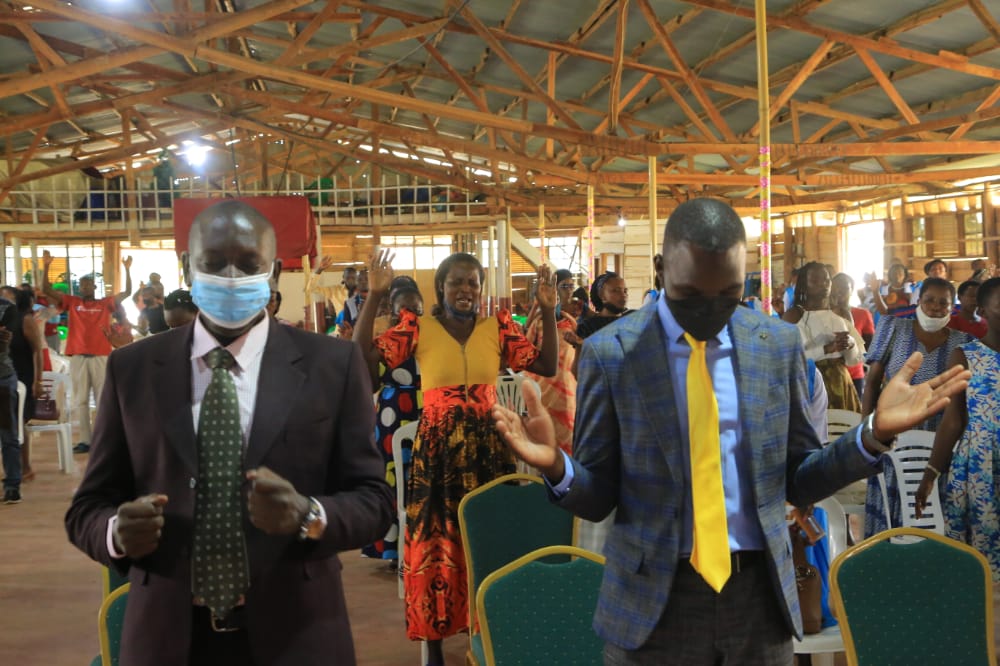In an address regarding the untimely death of the Speaker, the President said: ‘This business of God calling us. Why does God keep calling Africans only? Why doesn’t God like to call Japanese? We must look at the causes of death in Africa.’
In these remarks he made some astute observations. The first is that we are fatalistic about death and believe that there is nothing we can do about it. But is this really the case? The President also pointed out that God seems to have a liking for Africans because more of them die young than, for example, the Japanese. Statistically this is the case. The Japanese have the world’s longest life expectancy, with the average life of women being 87 and men 81, but there are also over 71,000 Japanese over a hundred years old today. On the other hand the life expectancy of Ugandan men is 61 and only 2% of Ugandans are over 65 years old.
We can accept this discrepancy between the age at which Ugandans die and the Japanese (or most other nations) as God’s will, or we can try to understand the cause and do something about it. Causes of death can be categorized into accidental, natural, suicide or homicide, and if we take just one category, such as accidents, we find that the rate of accidents on Ugandan roads is 20 times higher than that in a country such as Norway. The causes of road accidents in Uganda include bad driving, failure of police to enforce road discipline, overloading, lack of road signs, bad roads and congestion. In other words road accidents are not inevitable, but through our lack of discipline, risk taking and carelessness we increase our chances of dying in an RTA by twenty-fold. Boda boda riders live as if they are indestructible and die like lemmings throwing themselves over a cliff.
The leading causes of ‘natural death’ worldwide are heart disease and cancer, and in Africa we also have communicable diseases, such as HIV and malaria. Malaria can be prevented using mosquito nets, and we know how to prevent and treat HIV, so progress has been made in reducing deaths from communicable diseases, but we are seeing a rise in non-communicable diseases, including heart disease and cancer, in Uganda. So are such deaths also inevitable? Although no one can guarantee they will not become the victim of cancer or heart disease, there are actions that can reduce our chances of succumbing to such conditions. Such diseases are often referred to as lifestyle diseases because the risk factors are in the habits we have and the things we do everyday, so if we alter our lifestyle we can improve our chances of living longer.
Two main risk factors are diet and exercise – how disciplined are we in what we put into our bodies and how much we exercise them? I see people who are overweight, take too much sugar, do little exercise, put themselves under stress, take too much alcohol and smoke cigarettes – all of which are risk factors that will lead to early death from strokes and heart attacks. I also see more Ugandans taking exercise, which is a good trend, and more people being conscious of taking less sugar and fatty foods, which is also positive. The President also commented, ‘If you are going to put yourself forward for a very stressful job such as speaker, don’t do it if you know you have a health condition.’ This was a very valid point because many people put their position, their career or their business before their health, and then they die suddenly – for what? None of us have anything if we are not alive. There is nothing that should take priority over our health because if we are not alive we will not enjoy the position of privilege.
Another action that can be taken in the case of cancer is to implement measures for early detection. In many cancers early detection will mean the difference between a successful outcome or death. Measures such as screening for prostate cancer, breast cancer, or cancer of the cervix are not complicated but are not routinely carried out in Uganda.
So if we ask why many Ugandans die young, it is not that God is calling them, but that we are careless with our own lives – ignoring the risks or living as if these risks do not apply to us. Yes, the state of our healthcare system is obviously a contributing factor to early death, but there are also many factors that are under our own control, so we need to change what we control while we advocate for systemic change.
Do you have a story in your community or an opinion to share with us: Email us at Submit an Article








